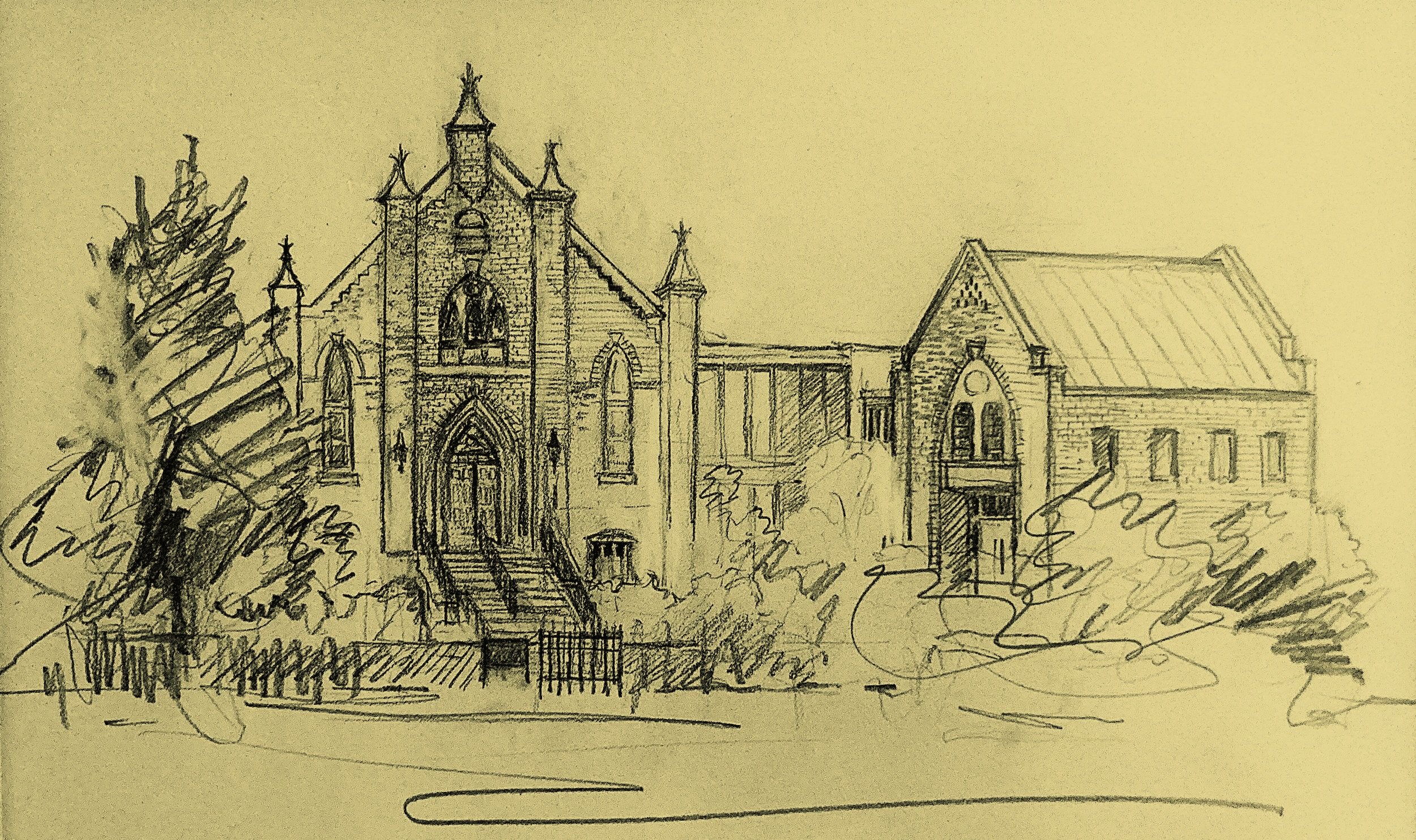
Give a gift. Make a difference.
From the time our synagogue was founded in 1882, Congregation Beth Israel (CBI) has served as the center of Jewish life and learning in Charlottesville. Please consider a gift to ensure that our community continues to thrive.
There are several ways to make a gift to CBI—today and in the future—that can provide financial benefits to your family while helping to secure the continuity of Jewish life in Charlottesville. Whether you choose to give annually, make a legacy gift, contribute to a special fund, or explore other options, please work with your accountant, tax attorney, or estate advisor to obtain professional advice specific to your particular situation. The information on this website is provided for informational purposes only as CBI does not give financial or tax advice.
Below, you’ll find a number of giving opportunities that can help you support CBI today and for generations to come!
For more information, please contact us at 434-295-6382.
→ CURRENT GIFTS
Every gift to Congregation Beth Israel (CBI) strengthens our vibrant community and sustains our programs, services, and values we cherish. The following information offers a sampling of ways you can make your donations count today!
-
You can make a donation by sending a check made out to Congregation Beth Israel at 301 East Jefferson Street, Charlottesville, VA 22902. Our EIN number is 51-0210891.
You can also donate online with a credit card (2.50% transaction fee applied) or with an ACH/eCheck transaction from your bank account (no transaction fee for this option).
-
You can make a donation and also pay for your membership dues and security fee, with a gift from your Donor-Advised Fund (DAF). Additional information and instructions can be found here.
-
You can donate to Congregation Beth Israel by transferring stocks that you have owned for at least one year and a day. You will receive a tax deduction for the fair market value of the stock on the date of the gift. You can also pay your membership dues and security fee with a gift of stock. Additional information and instructions can be found here.
-
If you are an Individual Retirement Account (IRA) owner who is subject to required minimum distributions, you can satisfy that requirement (in whole or in part) by making a charitable distribution to Congregation Beth Israel. You can also pay your membership dues and security fee with an IRA distribution. Additional information and instructions can be found here.
-
You may be eligible to have your donations to Congregation Beth Israel, including your membership dues and security fee, matched by your employer. Please check with the Human Resources Department to see if this benefit is available to you and whether gifts to Congregation Beth Israel qualify. If so, please submit your company’s matching gift form to us when you make your gift or request that one be sent to us to verify your contribution.
→ LEGACY GIFTS
There are numerous legal tools and financial products to help facilitate and achieve your long-term financial goals and wishes while ensuring that Congregation Beth Israel (CBI) remains strong and vibrant into the future. The following information is a sampling of vehicles to assist you in discussing options with your accountant or attorney handling your taxes and/or estate planning.
-
You can make a gift of securities to Congregation Beth Israel at any time, including through a bequest or other planned gift. During your estate planning, include the asset in your will as a bequest or place it in a trust and your executor or trustee will carry out your wishes.
-
A bequest means including a specific gift in your will. It allows you to direct some of your money or property to Congregation Beth Israel or another person or entity after your death. A bequest reduces the total value of your estate for tax purposes. A bequest to CBI is one of the easiest ways to make a gift to preserve Jewish life in Charlottesville. You need a written will to make a bequest. Working with an estate attorney, include or add a sentence to your will or trust agreement specifying to whom and how much you would like to give. The amount can be either a dollar amount, a specific thing (such as real estate you own), or a percentage of your estate. You can leave assets to support general purposes or restrict them to a specific program or fund.
-
A charitable gift annuity allows you to make a significant gift to Congregation Beth Israel while receiving interest income during your lifetime. Charitable gift annuities may be created to produce a lifetime stream of income for one or two people – usually the donor and spouse – but could also support a disabled child during his or her lifetime. Setting up a charitable gift annuity is relatively simple and can generally be done just by filling out a form and transferring assets to fund it. It can be funded with cash, securities, or real estate. Large nonprofit organizations, such as universities, manage charitable gift annuities in house. Smaller organizations like CBI do not have the resources to manage these gift vehicles in house, and instead work with an outside organization such as the National Gift Annuity Foundation (NGAF). In this case, a donor makes a contribution to NGAF, which provides the donor or named beneficiary with a fixed payment for life. Upon the death of the donor or other non-charitable beneficiary, NGAF forwards the principal of the charitable gift annuity to CBI as the designated gift recipient by the donor.
-
A charitable lead trust is a kind of irrevocable trust, which is designed to provide income to one or more charities, such as Congregation Beth Israel, for a specified period of time. At the end of the trust term, or upon the death of the donor, the remaining assets go to family members or other non-charitable beneficiaries. A charitable lead trust can reduce income tax, gift tax, and estate tax. It can be structured as an annuity trust or a unitrust. An annuity trust pays out a fixed sum of money every year for a set period of time, or the life of the annuitant. A unitrust pays out a set percentage of the next asset value of the trust every year. You need to work with a tax or estate advisor to create a charitable lead trust and the trust can be funded with cash, securities, or real estate, such as rental property.
-
A charitable remainder trust is an irrevocable trust that lets you donate assets to Congregation Beth Israel upon your death but, in the meantime, allows you or another person you designate to draw income from the donated assets. It can be structured to make payments for your lifetime, or for another person’s lifetime, or for a specified period of time, such as 20 years. After the death of the donor or the non-charitable beneficiary, the trust passes on the remaining assets to the charitable beneficiary named in the trust. You need to work with a trust and estate attorney to draw up a legal trust document, specify the beneficiaries, and fund it with cash, property, or other assets.
-
To donate through an insurance policy, you take out a life insurance policy on yourself and name Congregation Beth Israel as a primary beneficiary. You may buy either a term life policy, which lasts for a set number of years, or a whole life policy, which lasts for your lifetime. Buying a life insurance policy allows you to make relatively small premium payments while you are alive that will secure a relatively large gift to the charitable beneficiary at your death.
-
You can make a gift of real estate to Congregation Beth Israel at any time, including at your death through a bequest or placing the real estate in a charitable trust.
-
A revocable living trust allows you to place assets inside a trust and designate them to Congregation Beth Israel. A revocable living trust also enables you to avoid the public probate process and keep your estate plans and assets private. A revocable living trust is a document drawn up with an attorney specializing in wills and estates. With a revocable trust, unlike an irrevocable trust, you can change this document up to the date of your death.
→ MEMORIAL GIFTS
Dedicating a plaque, leaf, or brick in honor, celebration or memory of a loved one is a great way to support the preservation of our historic building and maintain our sacred spaces for future generations. Click HERE to view samples of plaques, bricks and leaves.
-
A custom brass plaque that will be mounted on the Yahrzeit board in the main sanctuary in perpetuity. Each year, a light bulb will be lit on the date of your loved one's yahrzeit. Inscriptions are 2 lines maximum.
The cost of the plaque is $1000.
-
A brick with your inscription (ex., In memory of / In honor of) installed in the stairwell landing by the Jefferson Street Lobby at CBI. Inscriptions are 4 lines maximum.
The cost of the brick is $750.
-
A metal leaf with your inscription (ex., In memory of / In honor of) installed on the Tree of Life in the entrance to the CBI main sanctuary. Inscriptions are 4 lines maximum.
The cost of a leaf is $300.











